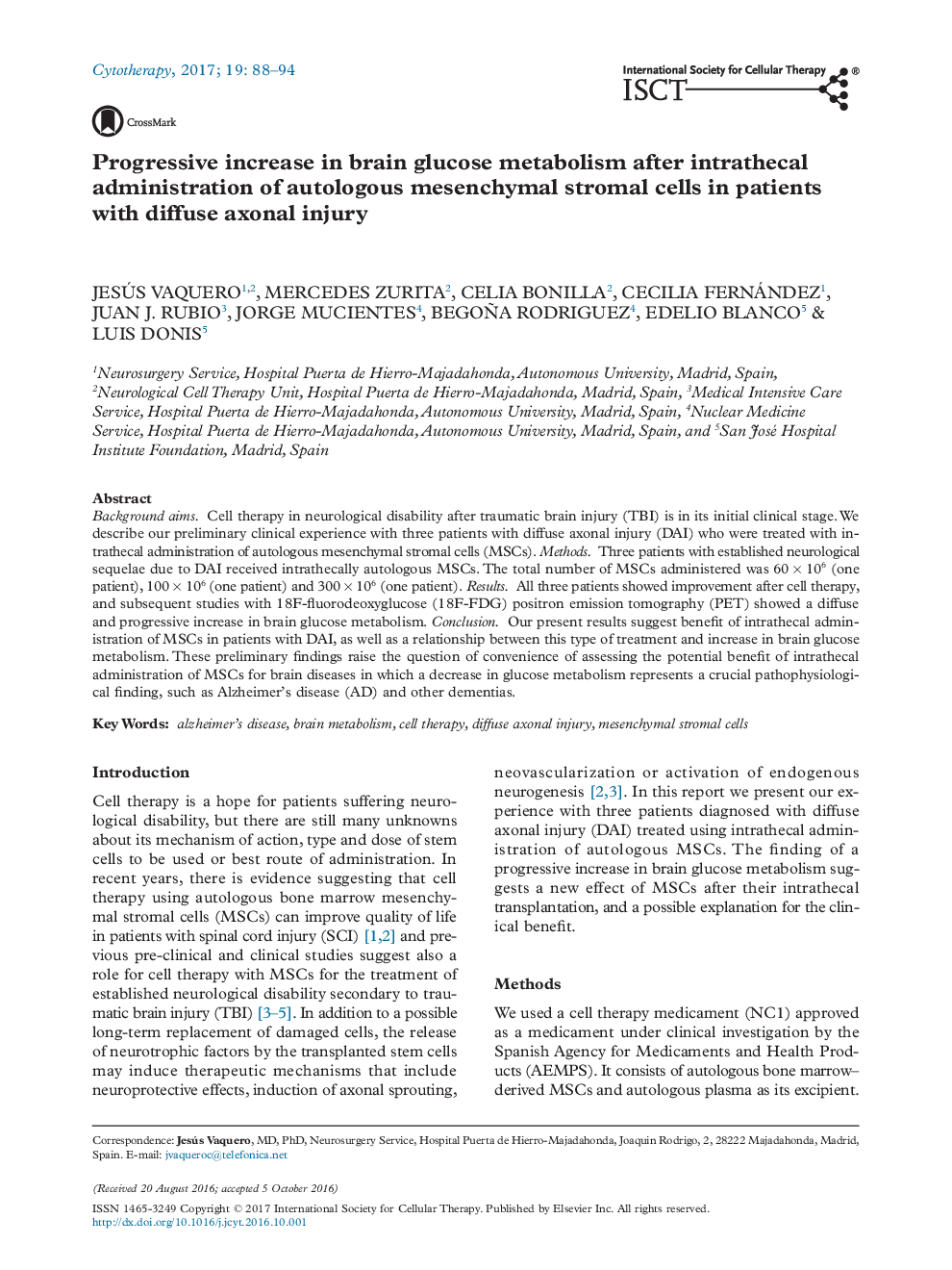| Article ID | Journal | Published Year | Pages | File Type |
|---|---|---|---|---|
| 5531280 | Cytotherapy | 2017 | 7 Pages |
Background aimsCell therapy in neurological disability after traumatic brain injury (TBI) is in its initial clinical stage. We describe our preliminary clinical experience with three patients with diffuse axonal injury (DAI) who were treated with intrathecal administration of autologous mesenchymal stromal cells (MSCs).MethodsThree patients with established neurological sequelae due to DAI received intrathecally autologous MSCs. The total number of MSCs administered was 60âÃâ106 (one patient), 100âÃâ106 (one patient) and 300âÃâ106 (one patient).ResultsAll three patients showed improvement after cell therapy, and subsequent studies with 18F-fluorodeoxyglucose (18F-FDG) positron emission tomography (PET) showed a diffuse and progressive increase in brain glucose metabolism.ConclusionOur present results suggest benefit of intrathecal administration of MSCs in patients with DAI, as well as a relationship between this type of treatment and increase in brain glucose metabolism. These preliminary findings raise the question of convenience of assessing the potential benefit of intrathecal administration of MSCs for brain diseases in which a decrease in glucose metabolism represents a crucial pathophysiological finding, such as Alzheimer's disease (AD) and other dementias.
